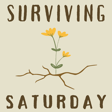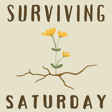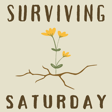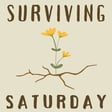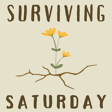
Desires and Stories and Fears-Oh My! (Pt. 1)
The Scarecrow in the Wizard of Oz just wanted a brain, and he thought--er, felt?--that then everything would be all right. But it turns out that brains are complicated things. Sometimes a part of our brain that is wired for survival (and thank God that it is!) can have a reaction of its own, before the rational part of our brain can even realize what is going on.
And as it turns out, the brain isn't the only part of our bodies that is involved in memory. As Bessel van der Kolk has now brought to public awareness, The Body Keeps the Score. Or as we might talk about it in a counseling session or intensive, our memories of traumatic experiences are both storied and stored.
When we have experienced any form of trauma, particularly at a very young age (when the brain is still forming), those events weave together to form a narrative in our mind. The stories we tell ourselves based on these experiences in turn affect what we believe about, how we make sense of, and how we engage with the world around us.
These memories are also stored. But the more traumatic or disruptive the experience, are, the more likely they are to be stored in a fragmented fashion. And if we did not have a compassionate caregiver to help us integrate or make sense of the experience, they stay in fragmented form, and not easily accessible through conscious memory.
This helps explain why a disconnected piece of a memory can get activated or triggered, and set of a chain reaction of thoughts, feelings, and even actions. It may seem random or "out of the blue," but in reality is not at all. As our friend Adam Young is fond of saying, "There's a REASON" your body reacted that way, or your mind "went there."
In this episode Chris & Wendy walk listeners through a very recent conflict that escalated quickly--and it wasn't pretty. But here they let you listen in on their unpacking of the instantaneous bodily responses that they each have been learning how to recognize, and to both narrate and navigate differently.
Chances are, aspects of the conflict may feel familiar to you as well, so listen in for hope and encouragement: your story, however it has been written until now, is still being re-written. And that's where God and the body of Christ can enter in and provide better healing than any old wizard guy.
